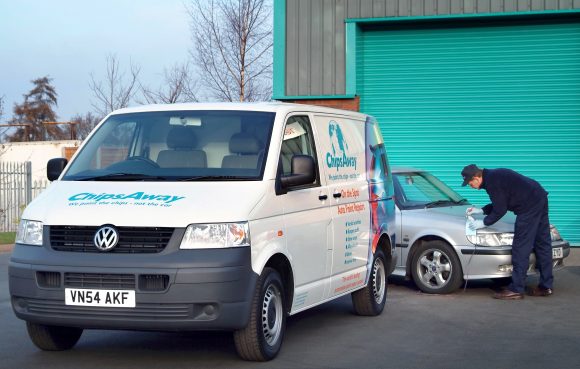Consumers are out shopping for used cars as the lockdown eases in their droves with many swapping public transport for their own set of wheels for the first time.
With the government advising against the use of trains and buses where possible, and many people heading back to work this week as most shops in England reopen, there are many buyers visiting car dealerships for the first time looking for a deal.
Car dealerships are already reporting very strong used car demand in the first few weeks back and used car prices are holding firm and in many cases going up as customers look to pick up a deal.
But for many the experience of visiting a dealership will be unfamiliar. In this post, designed for both consumers and car dealers who may be new to the trade, we look at some of the things to check on a used car only an experienced member of the motor trade might know.
Following our advice on how to negotiate with a car dealer posted a few weeks ago, we asked motor trade professionals in the Car Dealer Forum what advice they’d give friends and family when it comes to checking a used car over.
If you’re a dealer and think we’ve missed something here, get in touch here and share your thoughts and we’ll update the feature with your best tips.
Used car checks need to be car specific
What checks you make, depends on what car you’re buying, explains Car Dealer Forum member Justina3, but there are some basics you should always go over.
‘Apart from specific known car faults, the basics I tend to cover are screen scratches and chips as they’re always expensive to put right,’ he explained.

‘Nasty smells and signs of previous bad repairs need to be looked for and cars with built-in radios need to work as they are a nightmare to get repaired or swap out.’
But Justina3 also tailors his checks depending on what he is buying.
‘There are different rules for different car types, for example the small Aygo C1 107 family have a tendency to be bought by mothers of small children as second cars or first time drivers, so the first thing I check for when looking at them are dents in the roof where they sit their child whilst checking Facebook (I kid you not) and first time drivers hammer clutches.’
Stand back and have a good look
Some car dealerships can be a little cramped and with stock all parked up next to each other you won’t always get a proper look, warns forum used Have A Word With The Wife.
‘Stand back, walk around if space allows, looking for colour panel match and if space is at a premium stop on the test drive in a more open space,’ he advises.

‘Compare any noises you are not sure of with another of same model while matching tyres are always a nice sign, especially if they are good make.
‘Interiors are quite rugged on modern cars, so use your nose and your eyes here and check all the controls, especially if the car has something that you need (like air con) and check the roof, always check the roof.’
MOT history is also vital, he advises, so it’s worth checking it out online and reading about advisories and failures.
‘These could show a caring owner, while gaps of days or months might imply something else,’ adds Have A Word With The Wife, while also joking that ‘a good tyre kick does no harm’ too.
Make sure you get an history check
Dealer Paul C advises that getting a full history check – the most thorough you can afford – makes sense even on cheap cars.
‘Do your own HPI check as in, the proper £20 job, not the £10 basic check, nor any other companies offering a similar thing but cheaper,’ he says.
‘In addition to the actual check, there’s a guarantee that if it doesn’t reveal an anomaly (for example, log book finance owing which doesn’t show up) they’ll cover your loss. It will appear poor value for money on a cheap car – but these are the ones most likely to have something to hide. And for an expensive car, you have more to lose.’

He also advises that some classified advertising portals mark cars as ‘high’ value when comparing them to others – but this might not necessarily be a bad thing.
He explained: ‘It might sound counterintuitive, but I wouldn’t dismiss a car with a “high” Auto Trader price marker. The reason is, dealers know how much their car is worth and with the internet age, it is very rare to find a dealer just adding a bit onto their cars in a hope.
‘The high price marker will be for a reason: For example it has certain desirable (but not picked up by the price marker) options or colour; or it’s simply a great car which has led a trouble-free life.’
He says this is also true with a ‘low’ price marker where, when cars are often sold online, faults like poor bodywork or paint jobs can be hidden.
‘It’s very easy to choose not to photograph imperfections,’ he warns.
Listen to the car start
It’s not always possible, but when you can you should listen to the car start a few times as it’s here where a lot of expensive problems can rear their head.
Car Dealer Forum member Nevillec said: ‘Wherever possible I like to watch and hear the vehicle starting. Pre-corona auction days I have been caught out a few times buying a poor starter, which can mean an expensive repair, like a fuel pump.
‘It’s not always possible to see them start if you’re busy looking around, but it does help. The trained eye can easily spot dodgy paint/panels too.’
Tyres give a clue to the car’s past
Knowing how a car has been looked over by the previous owner is good to know – but not always easy to find out.
However, Car Dealer Forum member Halfpenny has a handy piece of advice: ‘If you’re looking for signs the previous owner ran on a shoestring – tyres are often the clue.’

He says a random selection of cheap tyres show the owner cared little for the quality of the parts they bought and if they scrimped on tyres what else did they cut costs on?
Halfpenny also says that after 40 years in the trade he can ‘easily’ spot paint and panel problems, but advises others with less experience to look carefully at anything that points to a repair.
He added: ‘Avoid scruffy or smelly interiors. And I don’t buy “automated-manual” cars like Honda iShift or Toyota MMT. If it’s DSG then check the operation.’
Clues are in the details
Several Car Dealer Forum members advise that checking the paperwork matches the car is vitally important too.
‘Compare the VIN number with the HPI Check and logbook, not just the VIN number in the window,’ says Have A Word With The Wife.
‘Research the car you’re looking at and find out where the other numbers are, especially important if you’re buying private.’

Numberplates that have the original selling car dealer’s details on them can show the car has never been in an accident, says forum member Casper.
If the car has been in a smash numberplates will often need to be replaced and the name on the bottom that original dealers often include will be lost when a spare set of plates is purchased elsewhere.
While this is a good tip, says Casper, it’s not ‘foolproof’ so look carefully for other crash damage.
Buy the owner as much as the car
While we’re not expecting you to go out and purchase yourself a used human, Car Dealer Forum member CCC says that if you’re buying private the owner can give you many clues about how the car has been looked after.
He says: ‘If looking at a private deal then you often “buy the owner” as much as the car. Evidence of regular maintenance and things being done when they need to be are vital. Service history is always a good indicator.’
CCC explains that not all owners keep service history paperwork as they don’t realise the importance of it.
He tells of one Mini he bought that seemingly had no history at all, but when he checked with the main dealer it had records of a full service every year for a decade. Main dealers can print out old history for you too from their records, he advises.
Scruffy exterior could mean the car’s scruffy too
The exterior of the car is the biggest clue to how the whole car has been looked after, advises Car Dealer Forum member New Year Revolutions.
He said: ‘Door edges are a sure fire way of noting a cared-for car from a car used purely as a convenience. Scuffed wheels/wheel trims is another tell tale if they are badly scuffed.’
If you have any tips you think we should have included, let us know by contacting us here.
For more used car insight, visit our dedicated used car section here



































